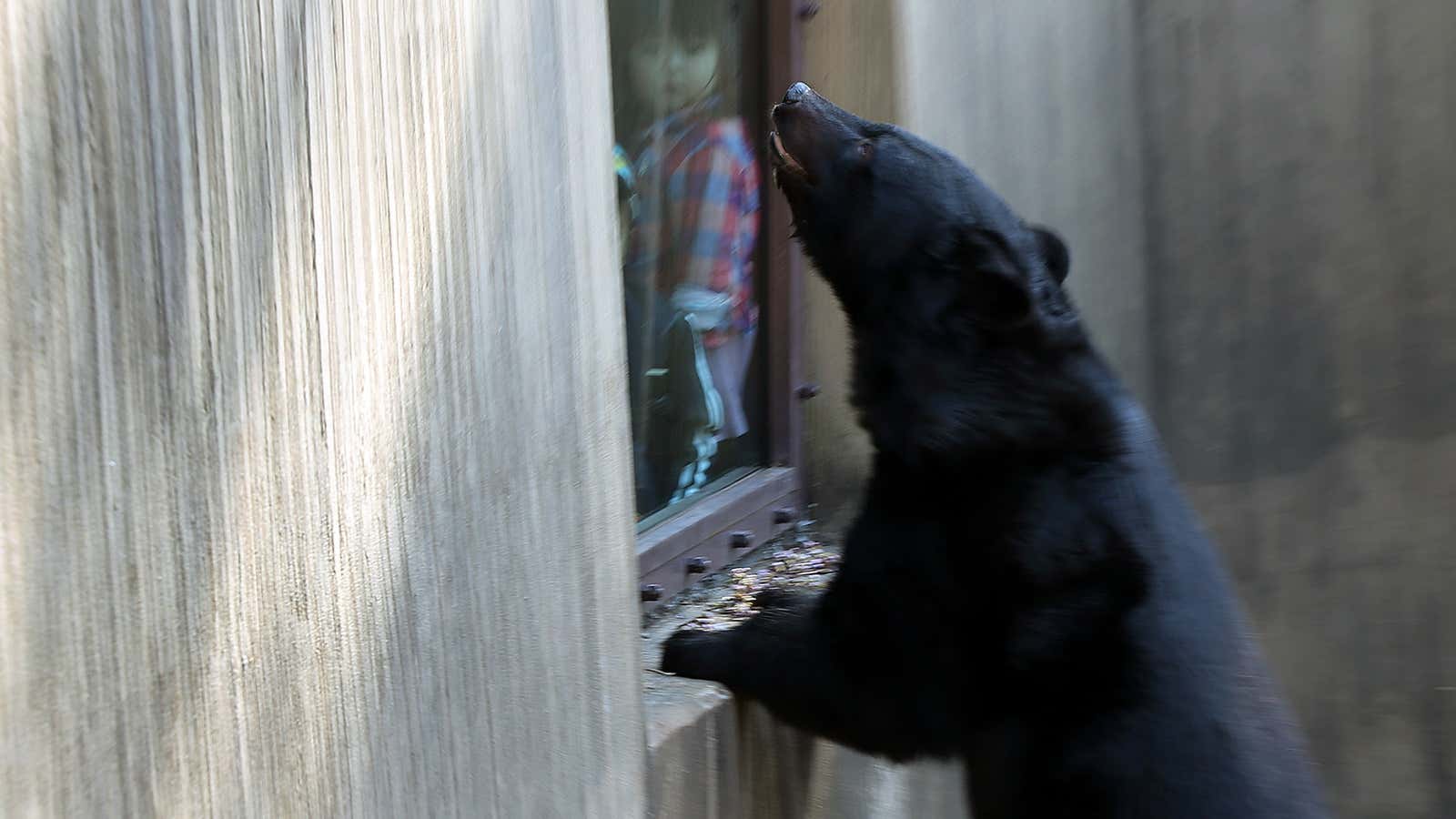You probably think your dog is the smartest animal in the world, but there’s still a lot that scientists don’t know about how animal intelligence works. One controversial theory in evolutionary biology posits that animals with larger brains are smarter—but despite how commonsensical the model seems, there’s little evidence to support it.
To test this hypothesis, University of Wyoming zoologist Sarah Benson-Amram and a team of evolutionary biologists from across the country designed an experiment to test whether carnivores with bigger brains are better at solving problems than carnivores with smaller brains. They presented 140 animals from 39 different species in US zoos with a steel mesh puzzle box that the animals could unlock to retrieve food from inside. They also measured whether carnivores who live in large social groups are better puzzle-busters than those who live in smaller groups or who lead solitary lives. This would test the ”social brain” hypothesis, which argues that animals’ brains develop to deal with issues that arise from being a social species.
The team chose to focus on carnivores partly because they don’t often appear in animal cognition literature, the authors write in their study, but also because they are excellent candidates for studying intelligence, as they often perform tasks that involve a lot of coordination, like social hunting.
The team’s findings appeared to support the notion that brain size does matter. They found in species that have larger brains relative to body mass—like bears, raccoons, otters, and wolverines—the number of individuals that could open the puzzle box was greater than in species with smaller brain size, like mongooses. (To measure brain volume, Benson-Amram and her team created virtual models of the animals’ brains.) And what about the “social brain” hypothesis? Social group size doesn’t seem to matter—the banded mongoose were no better at cracking the puzzle boxes than animals that belong to solitary species like black bears or wolverines.
Of course, this study is not the final word on animal intelligence. Evan MacLean from Duke University told the New Scientist that Benson-Amram’s results are “far from a death blow for the social intelligence hypothesis,” because they measure physical problem-solving rather than how animals form and manage social relationships in order to survive. Benson-Amram has said she wants to expand the study to look at animals in the wild. For now, enjoy this video from the New Scientist of various zoo animals trying to crack the scientists’ puzzle boxes—brain size aside, they’re really cute.
